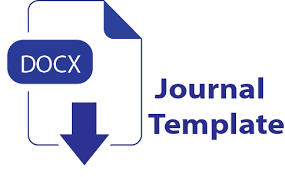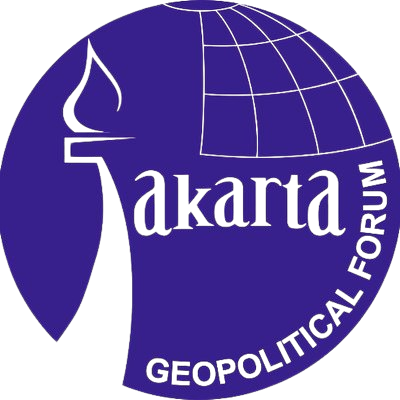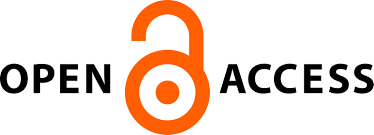ADAPTIVE CITIES IN A FRAGMENTED WORLD: STRATEGIES FOR ENERGY AND ECONOMIC RESILIENCE
DOI:
https://doi.org/10.55960/jgf.v9i1.303Keywords:
adaptive cities, clean mobility, climate adaptation, energy security, smart infrastructure, sustainable urbanizationAbstract
Urbanization has placed cities as the core of global transformation, as economic activity, energy use, and climate risk become concentrated. Cities produce more than 80% of global GDP and nearly 90% of private-sector jobs, and over 70% of greenhouse gas emissions and face rising exposure to extreme weather events. Rapid urban expansion in Southeast Asia undermines issues of fossil fuel dependence, infrastructure inadequacy and climate vulnerability, further highlighting the importance of resilience. This study applies qualitative content analysis to analyse policy frames, case studies and adaptation responses with a focus on two exemplar cities, Ho Chi Minh City and Hanoi. The results indicate that Ho Chi Minh City can be resilient by involving economics scale, private sector participation, and clean energy projects, and Hanoi highlights governance, planning, and institutional development. Comparative analysis highlights complementary pathways of adaptation across ASEAN, ranging of integrated urban planning, decarbonized mobility, smart infrastructure, and public-private-people partnerships. At the regional level, ASEAN supports resilience through cooperative platforms, yet further cross-border innovation and investment in clean technology remain critical. The study concludes that adaptive cities provide a foundation for both energy security and sustainable economic resilience in an increasingly fragmented world.
Downloads
References
1. Adlakha D, John F. The Future is Urban: Integrated Planning Policies can Enable Healthy and Sustainable Cities. Lancet Glob Heal. 2022 Jun 1;10(6):790–1.
2. Le TH. Jakarta Geopolitical Forum IX/2025. 2025 [cited 2025 Aug 16]. Adaptive Cities in a Fragmented World: Strategies for Energy and Economic Resilience. Available from: https://www.youtube.com/watch?v=9VSWkAXLb4U&t=3424s
3. Le TH. Adaptive Cities in a Fragmented World: Strategies for Energy and Economic Resilience. Hanoi; 2025.
4. Lord F. Transformation to Sustainable and Resilient Urban Futures in Southeast Asia. ISPRS Ann Photogramm Remote Sens Spat Inf Sci. 2020;6(1):43–50.
5. Miller MA, Douglass M, Rigg J. Governing Resilient Cities for Planetary Flourishing in the Asia-Pacific. Urban Stud. 2020 Mar 13;57(7):1359–71.
6. Paul AC, Raman NM. Synergising Growth: Role of Regional Interconnectedness for Resilient Energy Security in Southeast Asia. Int J Multidiscip Res. 2024;6(6):1–12.
7. Cao H. Urban Resilience: Concept, Influencing Factors and Improvement. Front Business, Econ Manag [Internet]. 2023;9(1):343–6. Available from: https://doi.org/10.54097/fbem.v9i1.8777
8. Ljiljana V, Engineering SMJNF universitatis series: A and C. Urban Resilience: Definitions, Understanding and Conceptualization. Archit Civ Eng. 2024;22(2):97–103.
9. Irani M, Rahnamayiezekavat P. An Overview of Urban Resilience: Dimensions, Components, and Approaches. Acta Sci Pol Adm Locorum. 2021 Dec 9;20(4):305–22.
10. Saleh AA, Al-Mudares KAW. Diagnosing the Integration of Resilient City Pillars and Indicators with Urban Energy Systems. Al-Nahrain J Eng Sci. 2022 Jul 19;25(2):1–11.
11. Glemarec Y. Financing Green and Climate Resilient Infrastructure in ASEAN Countries. Environ Prog Sustain Energy. 2023 Jul 1;42(4):14097.
12. Phoumin H, Kimura F, Arima J. ASEAN’s Energy Transition towards Cleaner Energy System: Energy Modelling Scenarios and Policy Implications. Vol. 13, Sustainability. 2021. p. 2819–48.
13. Scheiber L, David CG, Hoballah Jalloul M, Visscher J, Nguyen HQ, Leitold R, et al. Low-Regret Climate Change Adaptation in Coastal Megacities: Evaluating Large-Scale Flood Protection and Small-Scale Rainwater Detention Measures for Ho Chi Minh City, Vietnam. Nat Hazards Earth Syst Sci. 2023;23(6):2333–47.
14. Wu CF, Chen SH, Cheng CW, Trac L V. Climate Justice Planning in Global South: Applying a Coupled Nature–Human Flood Risk Assessment Framework in a Case for Ho Chi Minh City, Vietnam. Vol. 13, Water. 2021. p. 1.
15. Thuat PT. Challenges and Solutions for Hanoi to Become a Smart City. Urban Reg Plan. 2020 Mar 6;5(1):11–4.
16. Phap VM, Thu Huong NT, Hanh PT, Van Duy P, Van Binh D. Assessment of Rooftop Solar Power Technical Potential in Hanoi city, Vietnam. J Build Eng. 2020;32(1):101528.
17. Saunders M, Lewis P, Thornhill A. Research Methods for Business Students by Mark Saunders, Philip Lewis and Adrian Thornhill 8th edition. [Internet]. Research Methods For Business Students. 2015. 768 p. Available from: https://www.google.co.id/books/edition/Research_Methods_for_Business_Students/0DHFsgEACAAJ?hl=en
18. Krippendorff K. Content Analysis: An Introduction to Its Methodology [Internet]. SAGE Publications; 2018. 472 p. Available from: https://methods.sagepub.com/book/mono/content-analysis-4e/toc
19. Lechner AM, Ang MLE, Ooi JY, Azhar B, Kanai JM, Hamel P, et al. Urban Biodiversity and Nature-Based Solutions in Southeast Asia. Perspectives from Indonesia and Malaysia. ISEAS Publishing; 2021. 21 p.
20. Nepal R, Phoumin H, Khatri A. Green Technology Development and Deployment in the ASEAN—Lessons Learned and Ways Forward. In: Phoumin H, Taghizadeh-Hesary F, Kimura F, Arima J, editors. Energy Sustainability and Climate Change in ASEAN. Singapore: Springer Singapore; 2021. p. 217–38.
21. Tan SY, Taeihagh A, Sha K. How Transboundary Learning Occurs: Case Study of the ASEAN Smart Cities Network (ASCN). Vol. 13, Sustainability. 2021. p. 6502.
22. Crumpton CD, Wongthanavasu S, Kamnuansilpa P, Draper J, Bialobrzeski E. Assessing the ASEAN Smart Cities Network (ASCN) via the Quintuple Helix Innovation Framework, with Special Regard to Smart City Discourse, Civil Participation, and Environmental Performance. Int J Urban Sustain Dev. 2021 Jan 2;13(1):97–116
Downloads
Published
Conference Proceedings Volume
Section
License
Copyright (c) 2025 Author

This work is licensed under a Creative Commons Attribution-ShareAlike 4.0 International License.










